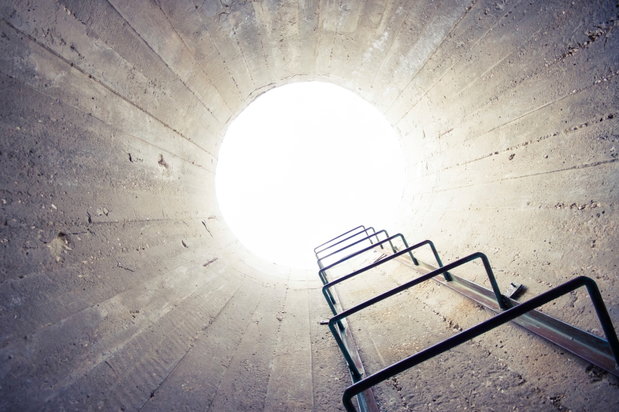High-risk situations are the enemy of sobriety. They are all around us and can pop up at any time.
When trying to avoid high-risk situations that can lead to relapse, we must always keep one thing present in our mind: our enemy.
Most 12-Step programs based on Alcoholics Anonymous (AA) remind us that we deal with addiction –“cunning, baffling, powerful!” Having an awareness of who our enemies might be and where they might come from is essential to making progress along the road of recovery.
These three steps will inevitably strengthen you in your resolve to maintain sobriety with the help of your Higher Power.
1. Take Your Temperature (Ask Yourself, How Do I Feel)
Well, not literally. Before heading to the next appointment, meeting, activity, or part of your day, ask yourself a simple question, “How do I feel?”
Feelings provide essential information about our reactions to situations. They are often our best clue to the meaning of our current experience—they are less ‘processed’ and more ‘raw’ than our thoughts. They can provide accurate feedback on our current ‘inside’ state.
What does that mean? It means that one of the easiest ways to avoid high-risk situations is to know our current “inside” state. Knowing how we feel—glad, sad, angry or scared—can mean the difference between avoiding high-risk situations or driving ourselves right into them.
Our inside state is not all that drives us. If we listen, our bodies also tell us a lot.
People in 12 Sep programs know the power of the acronym HALT. The letters stand for hungry, angry, lonely, and tired. These physical and emotional states can make us naturally vulnerable to our cunning enemy of addiction.
Taking your temperature throughout your day helps you to halt and see how you are feeling, both physically and emotionally. Knowing how you feel will affect your thoughts, which, subsequently, affect your actions: avoidance or self-indulgence.
2. Make a Laundry List
Don’t be shy. All of us are vulnerable. All of us have dirty laundry. Step 1 of the 12-Steps reads, “We admitted we were powerless over our addiction—that our lives had become unmanageable.”
If you don’t recognize that you are powerless, how can you know who your enemies are? How will you know what high-risk situations to avoid? You won’t, plain and simple. That’s why it is so important to make a list of people, places, and personal issues that you know cause you problems.
Here’s a helpful example of a laundry list of high-risk situations: bars, holiday parties, tailgates with old fraternity brothers, your ex-girlfriend, the refrigerator after cutting the grass on a hot, summer day, being alone when sad, being around people when angry, working more than a 40 hour work week, death in the family, breakups, losing a job, not enough sleep, etc.
Not knowing what laundry is on our list can be an opportunity to relapse. These “laundry lists” of high-risk situations help us see a situation for what it is. We are also honest with ourselves about what it will be if we don’t avoid them whenever possible.
3. Reach Out
Nothing drives addiction like secrecy and isolation. Signs of addiction tend to be grouped under general deceitfulness and insincerity. Isolation, withdrawal, hiding drug and alcohol use, and stealing are all dishonest behaviors. The reason so many people become addicted is that they thought they could handle their problem all by themselves!
Remember what we said earlier. Our enemy is addiction—cunning, baffling, powerful!
Who goes into a war by themselves? Someone who won’t make it through the first battle, that’s for sure. That’s why reaching out is so important. So what if you could do it alone? Why put yourself through that? Many justify isolation by saying that it protects others from having to suffer with us. Experience tells us they will suffer more because of our addiction and isolation than they will try to help us maintain sobriety.
Here is where a sponsor comes in. Sponsors can help us avoid isolation and secrecy. Being honest with a sponsor can achieve at least two objectives right away. First, we are no longer alone. Second, we are able to express how we feel without judgment. A sponsor has been in our shoes. They know the pitfalls because they too have fallen in them at one time.
When trying to avoid high-risk situations, just reaching out to a sponsor, professional, or trusted friend, going to a meeting, calling people on your go-to list can give you the tools you need to build strong foundations upon which to build your recovery.







